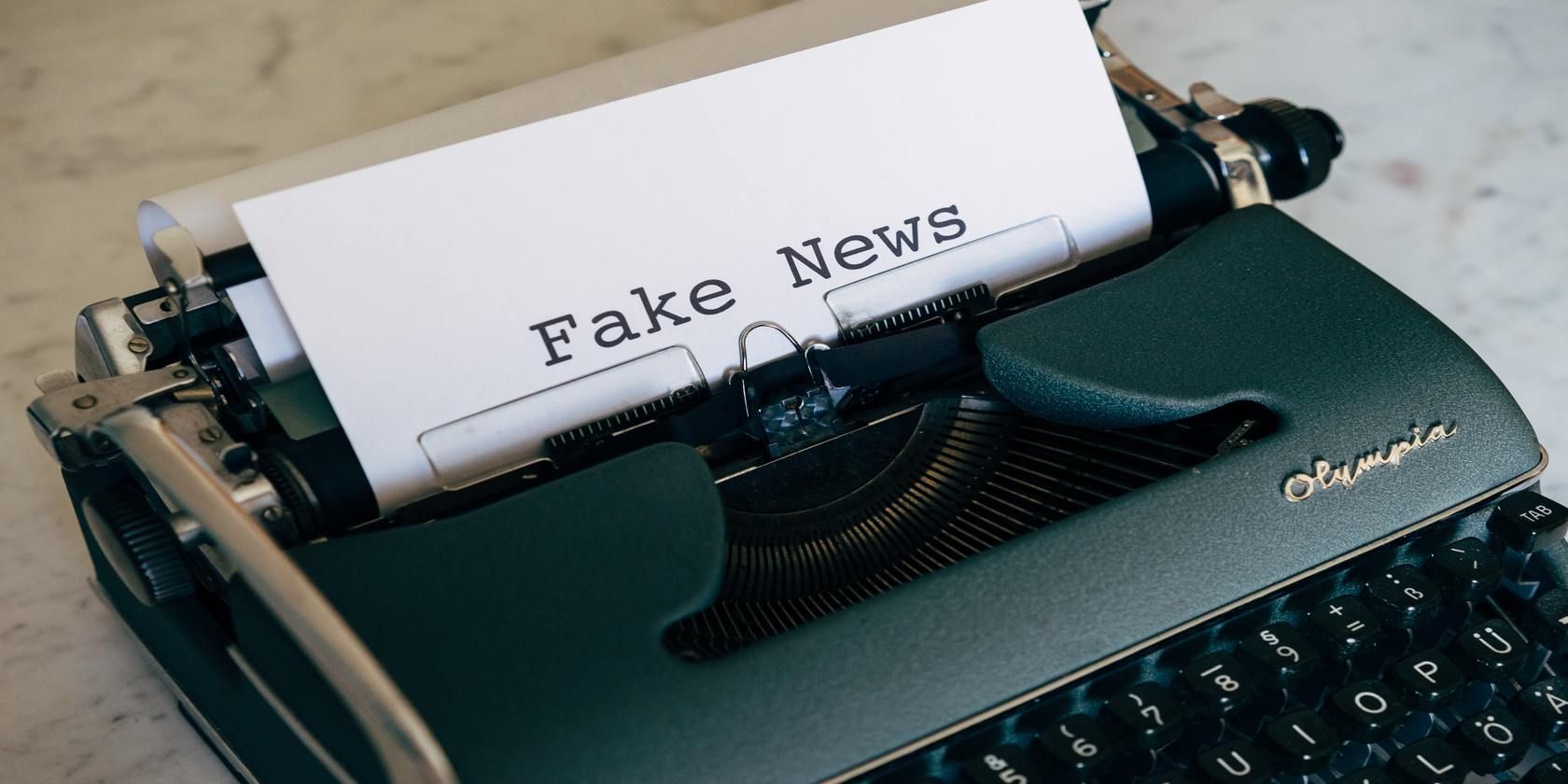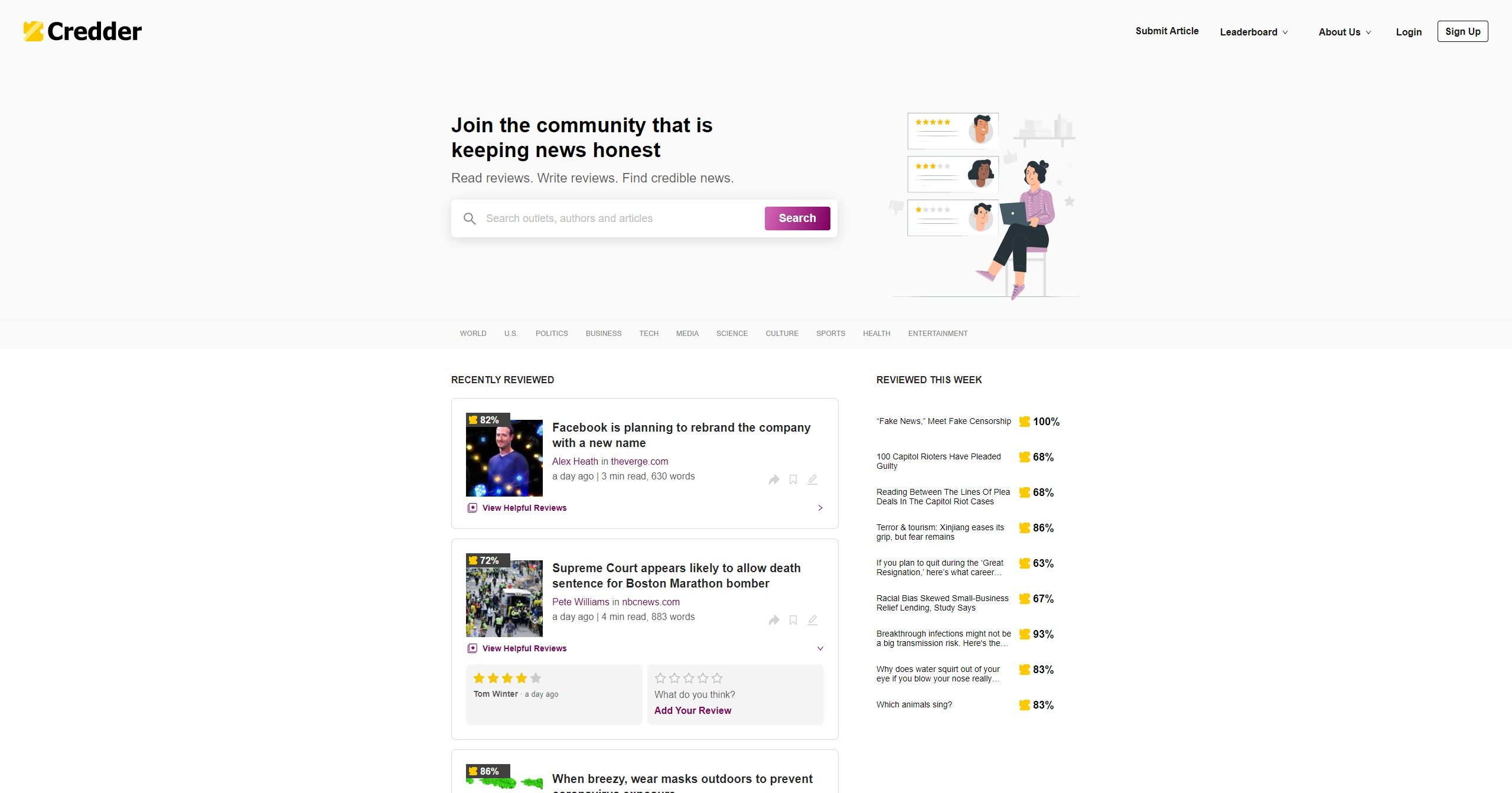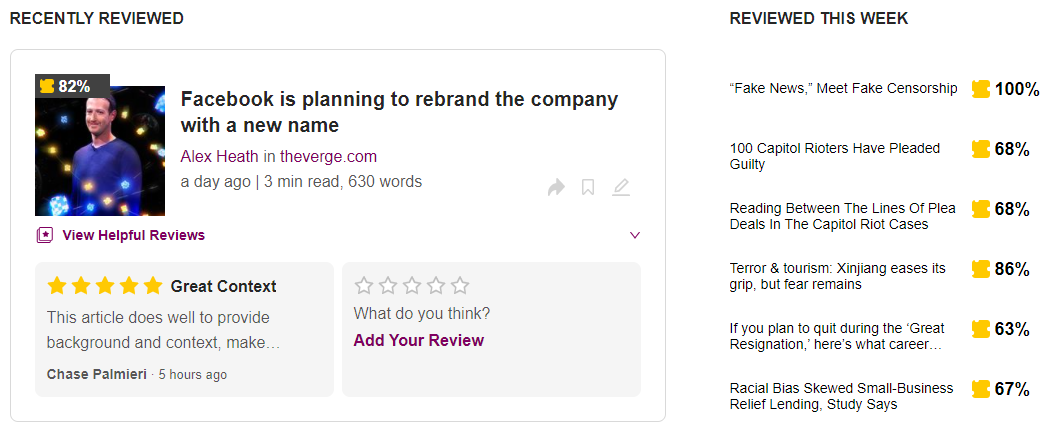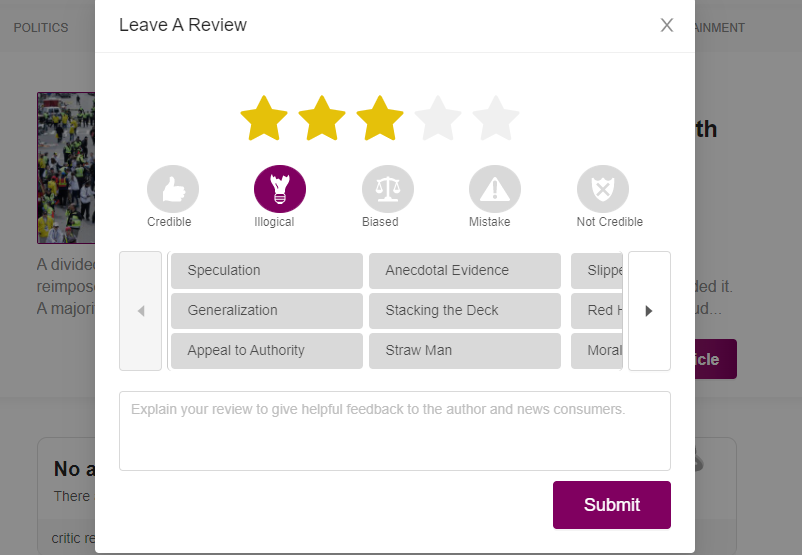Fake news is a serious problem. Hostile actors have taken advantage of the mistrust in the public to push multiple agendas and spread misinformation among people. Needless to say, learning how to spot fake news is very important.
It's no secret that the world has been struggling with fake news for a long time now. There are so many sources out there, it can be hard to know what is true and what isn't. However, platforms like Credder are making it a bit easier for people to spot fake news easily.
Here, we'll take a look at how you can use Credder to spot fake news.
What Is Credder?
Credder is an online platform created by Chris Palmieri. A restaurateur by profession, Palmieri was inspired to build Credder after he realized the potential of review platforms like Yelp.
Simply put, Credder is a review platform for rating articles, authors, and news publications. The platform doesn't host any articles itself; it simply scours the web for latest publications and gives both verified journalists and the public the option to give a rating.
Users have the option of assigning a rating to different articles. This is designed to combat clickbait and ensure accuracy of information. The latest articles appear on the home page, and you can view individual ratings left by the journalists, as well as the public, below each published piece.
Verified journalists and the public can also leave comments further explaining their rating. If you find an article online but aren't sure about its authenticity, you can also submit it to Credder, and their journalists will assign it a rating. Users can create their accounts, or log in via Twitter as well.
The platform's great for people don't know how to spot fake news properly. It can also help people avoid fake news in a serious crisis, as they will only follow information released by trusted sources.
How to Use Credder to Spot Misinformation
Credder is fairly simple to use. Just log on the website, and you can find curated articles that are neatly organized into different categories. The platform relies heavily on user input, so you can see reviews left by both their journalists and the public.
Here's how you can use Credder to spot misinformation:
- Search for relevant articles on Credder. Besides each article, you will see the Public Rating and the User Critic Rating.
- The higher the rating, the more reliable the source.
- You can click on the article, and you'll be taken to the parent website.
- There's also a handy search tool that you can use to find articles or authors via keywords.
- Users can also rate individual authors and outlets. In turn, each user is assigned a rating from Credder as well. This is designed to ensure the quality of ratings across the platform.
Anyone can rate articles on Credder as well. You can give a rating between 1 and 5 stars, and assign a credibility rating. You can also provide feedback to authors and readers alike.
Credder also has a browser extension. If you don't know how to spot fake news, just use the extension to figure out whether an article is worth reading or not. The extension also allows users to leave reviews on different articles directly from the main window.
How the Rating System Works on Credder
The platform also has a leaderboard that showcases top-rated authors and news outlets. You can see ratings from both critics and the public. If you want to read more from a news outlet or articles by a particular author, you just have to click on their name.
Credder uses two different icons to denote the quality of articles, authors, and outlets. The Gold Cheese indicates a rating of 60 percent or higher, whereas the Moldy Cheese indicates a rating of 59 percent or less. For articles that aren't rated, you'll see a “No Rating Yet” sign.
This is designed to foster trust between authors, outlets, and readers. People who don't know how to spot fake news or simply don't want to fact-check each and everything can simply read articles by the top-rated authors or outlets.
It's important to understand that Credder is not a fact-checking website. They simply aggregate reviews from journalists and users on the platform; they don't debunk misinformation. There are other fact-checking websites that you can use if you want to improve the accuracy of information you rely on.
Credder Relies on Crowdsourcing Trust and Honesty
Unlike other platforms like NewsGuard, Credder aims to establish trust among its audiences by letting them rate different articles. However, this opens the door for several issues, especially manipulation.
User bias is a serious problem, as many people are likely to upvote articles from their favorite journalists. On the other hand, journalists can also rate articles from their friends highly, and downvote posts by competitors. However, it's still better than NewsGuard, which takes a hard approach and assigns ratings on its own.
It's by no means a perfect platform, Credder doesn't allow one person to create more than one account, but there's little information about moderation on the platform. Who verifies journalists, against what criteria, and what steps are they taking to ensure the accuracy of reviews for each article?
Credder is more transparent, and is designed in the same vein as Web of Trust, though it focuses on the reliability of published posts, instead of website security.
Identifying Fake News Is Difficult, But Not Impossible
Platforms like Credder are trying to improve the reliability of information available to the public. However, you can also play an important role in culling the spread of misinformation, simply by verifying information before you pass it on.
A simple search to check whether other reputable publications have written on the same topic or not can help you figure out if the information is accurate. Or, you can just consume information from independent, trustworthy news sources.





